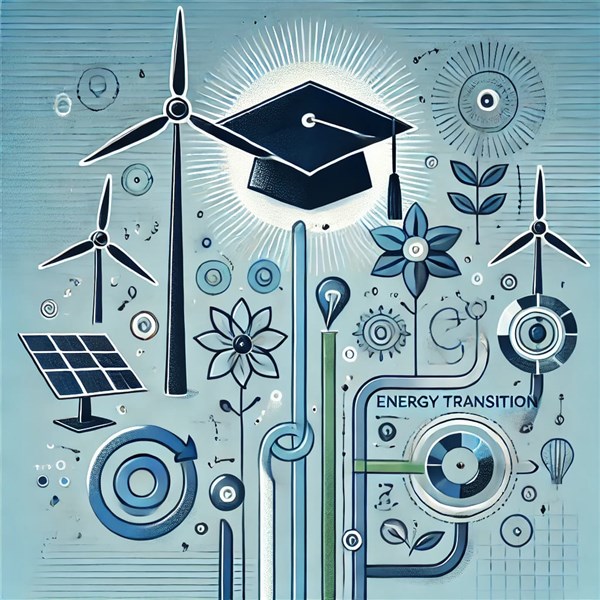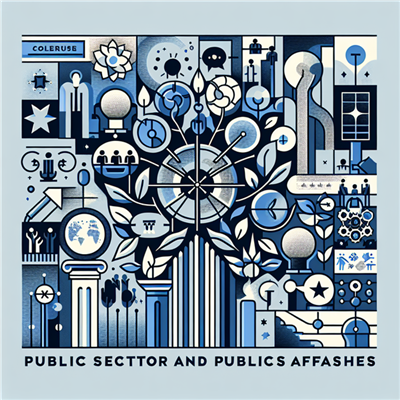
As the world shifts toward cleaner, more sustainable energy sources, the demand for professionals skilled in energy transition is rapidly growing. Energy transition training is essential for anyone looking to enter this dynamic field, whether you’re an experienced professional in the energy sector or someone starting their career in renewable energy. This guide provides a comprehensive, step-by-step approach to help you navigate the process of obtaining the necessary skills, certifications, and knowledge to thrive in the evolving energy landscape.
What is Energy Transition Training?
Energy transition training refers to the programs, courses, and certifications that equip individuals with the knowledge and skills necessary to support the global shift from fossil fuel-based energy systems to cleaner, more sustainable energy sources. As countries, businesses, and industries work toward achieving net-zero emissions and addressing climate change, the role of energy transition professionals has become crucial.
This training covers a range of topics, from renewable energy technologies (such as solar, wind, and hydropower) to energy storage systems, smart grids, carbon management, and energy efficiency. It prepares professionals to work in various sectors, including utilities, construction, transportation, policy-making, and environmental consultancy.
Why is Energy Transition Training Important?
Energy transition training is important for several reasons:
- Climate Change Mitigation: Professionals trained in energy transition help mitigate climate change by enabling the adoption of renewable energy technologies and energy-efficient practices.
- Emerging Job Market: As the energy sector undergoes a transformation, new career opportunities are emerging. The demand for skilled professionals in renewable energy, energy management, and sustainability is increasing.
- Industry Growth: The renewable energy sector is one of the fastest-growing industries globally. Energy transition training allows professionals to stay competitive and be part of this growth.
- Policy and Regulatory Alignment: As governments and organizations set ambitious sustainability goals, energy transition training ensures compliance with regulations and helps professionals contribute to meeting these targets.
Step 1: Understand the Core Areas of Energy Transition
Before diving into training, it’s essential to understand the key areas of focus within the energy transition. These include:
- Renewable Energy Technologies: Training in technologies like solar, wind, geothermal, and hydropower, which are at the forefront of the energy transition.
- Energy Storage Solutions: Understanding how energy storage technologies (such as batteries) work, which are crucial for managing intermittent renewable energy sources like wind and solar.
- Energy Efficiency: Learning how to optimize energy usage across industries and buildings to reduce overall energy consumption.
- Smart Grids and Digitalization: Familiarity with smart grid technology, which allows for better management and distribution of electricity.
- Carbon Management: Learning about carbon capture, utilization, and storage (CCUS) techniques to reduce carbon emissions.
- Sustainability and Policy: Gaining knowledge in environmental policies, sustainable development goals, and regulatory frameworks that govern the energy sector.
Step 2: Research and Choose the Right Training Program
There are various paths you can take when it comes to energy transition training. Here are some key considerations:
a. Formal Education:
Many universities and institutions now offer degree programs related to renewable energy, sustainability, and environmental science. If you’re considering a long-term career in energy transition, a bachelor’s or master’s degree in these fields can provide you with a strong foundation.
- Bachelor’s Degrees in Renewable Energy or Environmental Science: These degrees typically cover the basics of renewable energy technologies, energy policy, and environmental impact.
- Master’s Degrees in Sustainable Energy or Energy Management: A more specialized and advanced program focusing on high-level concepts, technologies, and strategic management in energy transition.
b. Professional Certifications:
If you’re looking to gain specific skills or enhance your credentials, there are many professional certification programs that focus on energy transition and renewable energy. These certifications are often shorter in duration than degree programs and are designed to be accessible to professionals at various stages in their careers.
Some well-regarded certifications include:
- Certified Energy Manager (CEM): Offered by the Association of Energy Engineers, this certification is ideal for professionals looking to specialize in energy efficiency and management.
- Renewable Energy Professional (REP): Provided by the Association of Energy Engineers, this certification focuses on renewable energy technologies and their implementation.
- Solar Energy International (SEI) Training: SEI offers a range of training programs on solar power technologies, including both online and hands-on courses.
- Wind Energy Technician Certification: A certification for professionals looking to work in the wind energy industry, focused on installation and maintenance of wind turbines.
- LEED Certification (Leadership in Energy and Environmental Design): LEED certification focuses on energy-efficient building design, construction, and management.
c. Online Courses and Workshops:
If you’re looking for flexible training options, online courses are a great choice. There are numerous platforms offering courses on energy transition topics. Some of these include:
- Coursera and edX: These platforms offer a wide range of energy transition courses from universities such as Stanford and the University of Colorado, covering topics like renewable energy, smart grids, and energy policy.
- Udemy: Offers affordable online courses focusing on renewable energy technologies, energy efficiency, and environmental sustainability.
- Energy Institute’s Training Programs: The Energy Institute provides a variety of courses, including sustainable energy training and carbon management.
Step 3: Gain Hands-On Experience
While theoretical knowledge is essential, gaining practical experience is equally important in energy transition training. Many certification programs, universities, and training organizations offer practical learning opportunities. These may include:
- Internships and Apprenticeships: Many organizations offer internships or apprenticeships where you can gain hands-on experience in renewable energy projects, energy efficiency audits, and energy management.
- Fieldwork and Site Visits: For some programs, particularly those in solar or wind energy, site visits to installations are part of the training, providing real-world insight into how these technologies operate.
- Lab Work and Simulations: In addition to fieldwork, some programs offer lab work or simulated environments where you can practice installing or managing renewable energy systems.
Step 4: Network and Join Industry Organizations
Networking is an essential part of getting into the energy transition field. Joining industry organizations provides access to valuable resources, job boards, and networking opportunities. Some organizations to consider include:
- International Renewable Energy Agency (IRENA): A global organization dedicated to advancing renewable energy. They offer research, reports, and networking opportunities for energy transition professionals.
- Association of Energy Engineers (AEE): Offers certifications, networking events, and professional development opportunities for those in the energy sector.
- Renewable Energy Industry Networks: Local or national networks focused on renewable energy professionals can provide insights into local opportunities and trends.
Step 5: Stay Up-to-Date with Industry Trends
The energy transition sector is constantly evolving. To stay competitive, you need to be aware of the latest trends, technologies, and policy changes. Follow industry news, attend conferences, and engage in continuous learning to keep up with developments in the energy sector.
Step 6: Explore Career Opportunities in Energy Transition
Once you’ve completed your training, it’s time to explore career opportunities in the energy transition field. Some potential career paths include:
- Renewable Energy Technician: Installation and maintenance of renewable energy systems such as solar panels, wind turbines, and energy storage solutions.
- Energy Consultant: Advising businesses and governments on energy efficiency strategies and renewable energy adoption.
- Sustainability Manager: Overseeing sustainability efforts within companies, ensuring they meet environmental goals and regulations.
- Policy Analyst or Advocate: Working with governments or NGOs to shape policies that support the energy transition.
Conclusion
Getting started with energy transition training is an exciting and fulfilling journey. Whether you're looking to transition into renewable energy from a traditional energy background or are just starting in the field, the right training programs and certifications will equip you with the skills needed to thrive. With the growing demand for sustainable energy solutions, a career in energy transition not only offers excellent opportunities but also contributes to a more sustainable and environmentally friendly future.
The energy transition is an inevitable and necessary shift. With the right Energy Transition Training, you can be part of this transformative journey. As a leading IT training company, Koenig Solutions offers a wide range of top-notch technology courses and certifications, including Energy Transition Training.







COMMENT